- Category
- Latest news
Germany Must Prepare for War to Prevent It, Says Hamburg’s Military Commander
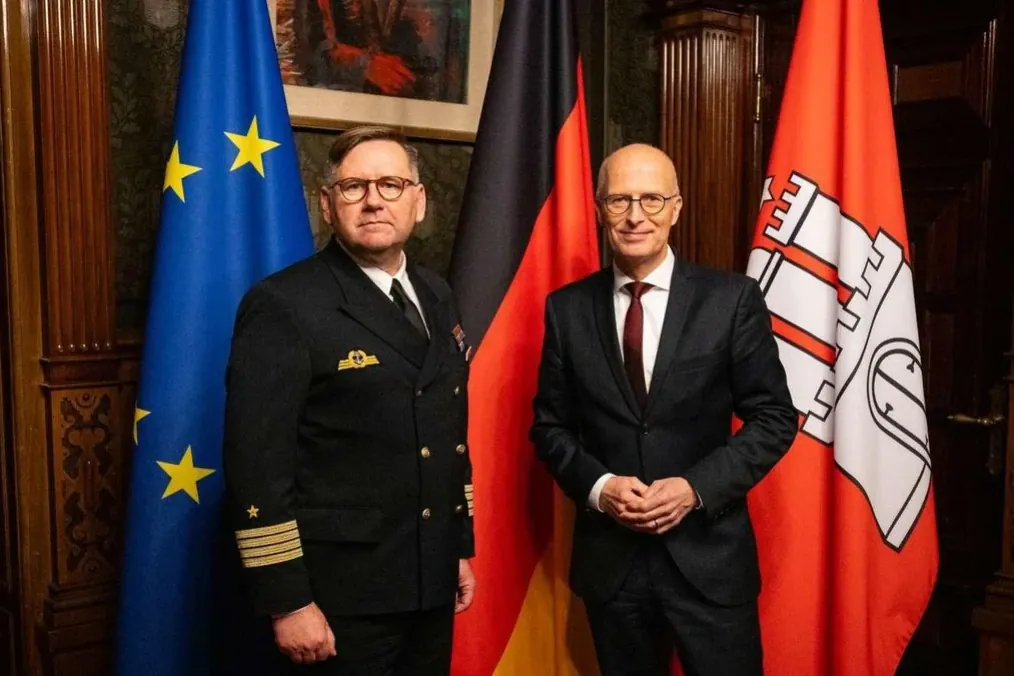
Hamburg’s new State Command leader, Captain Kurt Leonards, issued a warning about the future security landscape in Europe in an interview with MOPO on December 5.
Leonards explained that while 50% of Russia’s current military production is being used in the war against Ukraine, the other half is being stockpiled for a potential attack in four or five years targeting the Baltic states, Poland, or Moldova.
Leonards emphasized the importance of NATO’s ability to create a credible deterrence scenario to prevent such aggression. “We must prepare for war to prevent it,” he stated.
During the Cold War, Germany was the frontline state that would have become the battlefield in the event of a hot war. Leonards suggested that the nature of Germany’s role has shifted. In the next potential conflict, Germany will act as a critical staging ground rather than the main battleground.
In this capacity, Germany will host reinforcements arriving at ports in northwestern regions like Hamburg, where NATO troops, equipment, and supplies will be distributed to the alliance’s eastern borders via road, rail, or air transport.
Leonards revealed that Hamburg would serve as a pivotal hub for NATO forces during an emergency, with tens of thousands of troops passing through the city. Recent military exercises, such as September’s “Red Storm Alpha,” simulated the unloading of tanks and military vehicles from an Allied ship at a port in Hamburg.
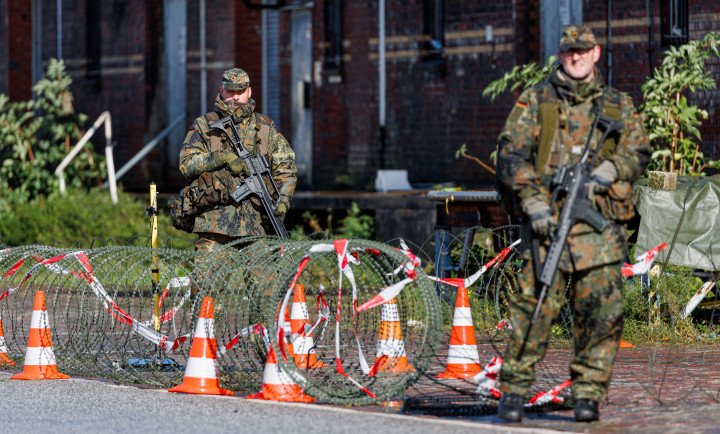
A follow-up exercise, codenamed “Red Storm Bravo,” is scheduled for early next year. This operation will again involve the city’s three homeland security companies and their 360 volunteers, which will eventually expand as more applicants join.
Leonards stressed the need for Germany and its population to become more defensive and resilient against potential threats from aggressors. He acknowledged that this requires not only military readiness but also robust collaboration with civil authorities.
“In order to be able to act as a convincing deterrent, we are dependent on the civil authorities,” Leonards said, highlighting Hamburg’s close coordination between the military and the Interior Ministry.
Joint working groups are already planning for a scenario involving hundreds of thousands of NATO troops. These plans include assessing which roads and bridges can handle troop movements in an emergency.
Meanwhile, Hamburg’s Interior Ministry is also ramping up its preparations. The disaster protection system is being overhauled to address threats like cyberattacks, espionage, and sabotage. A new “Department for Crisis Management and Civil Protection” with 40 positions is being established. Additionally, the State Office for the Protection of the Constitution is expanding its capabilities, adding seven positions to focus on espionage and cyber activity.
Acknowledging the severity of the potential threats, Hamburg and federal authorities are working on a nationwide shelter program. This involves mapping underground garages, subway stations, and basements that could serve as civilian shelters in the event of an attack.
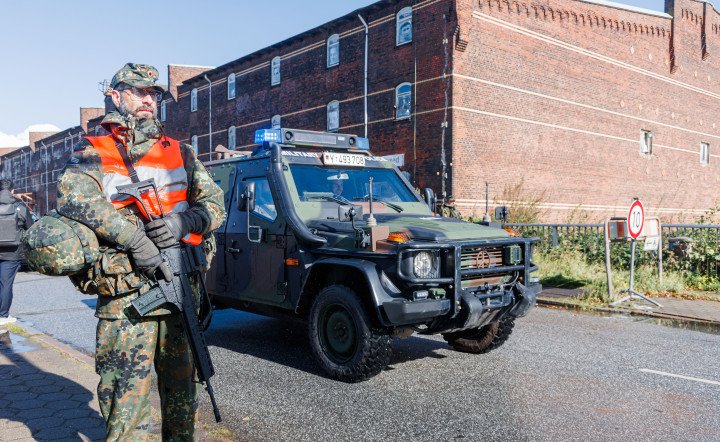
However, he warned that failure to deter aggression could lead to legitimate concerns.
“If we do not succeed in achieving credible deterrence, then there is real cause for concern,” he said.
In closing, Leonards emphasized the importance of shifting public awareness toward the reality of potential threats. “But I am an optimist. What matters now is making society, which has not had any sense of threat for decades, aware of the need for deterrence. Then Putin will see that the risk of an attack is too great – and will not proceed.” he said.
Earlier, classified documents revealed a plan, known as “Operation Deutschland,” which details how Berlin could support the deployment of up to 800,000 NATO troops, including US forces, to Ukraine in response to escalating nuclear threats from Russia.

-11b58f58a83d9b0f8fe40066449b041e.jpeg)

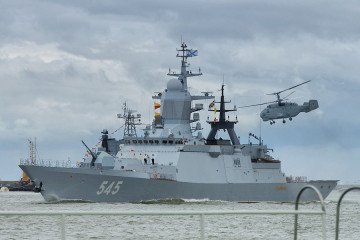


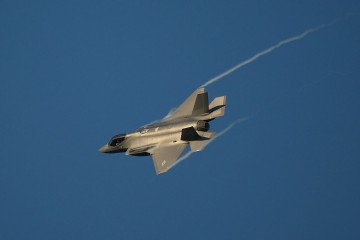
-72b63a4e0c8c475ad81fe3eed3f63729.jpeg)